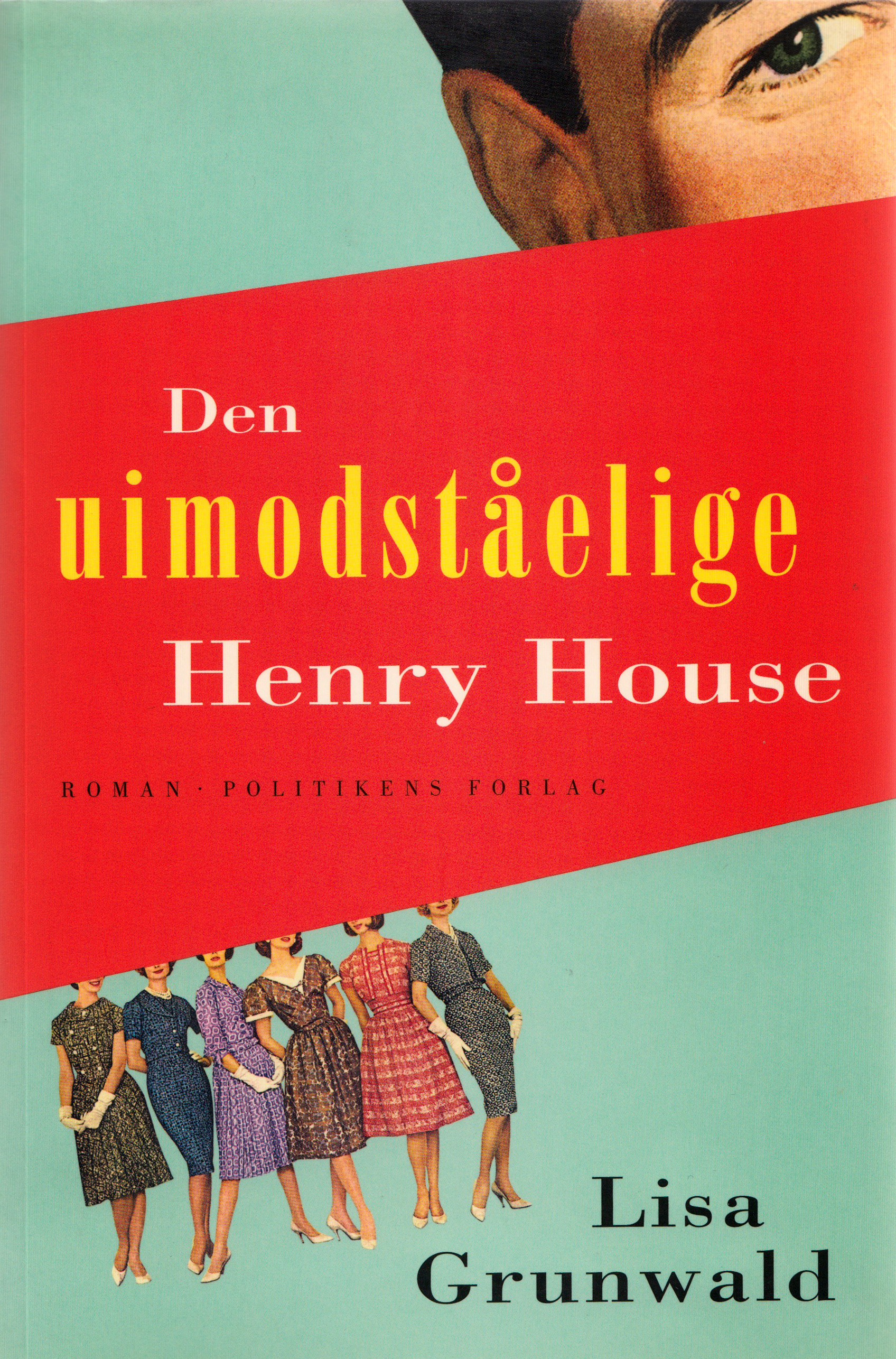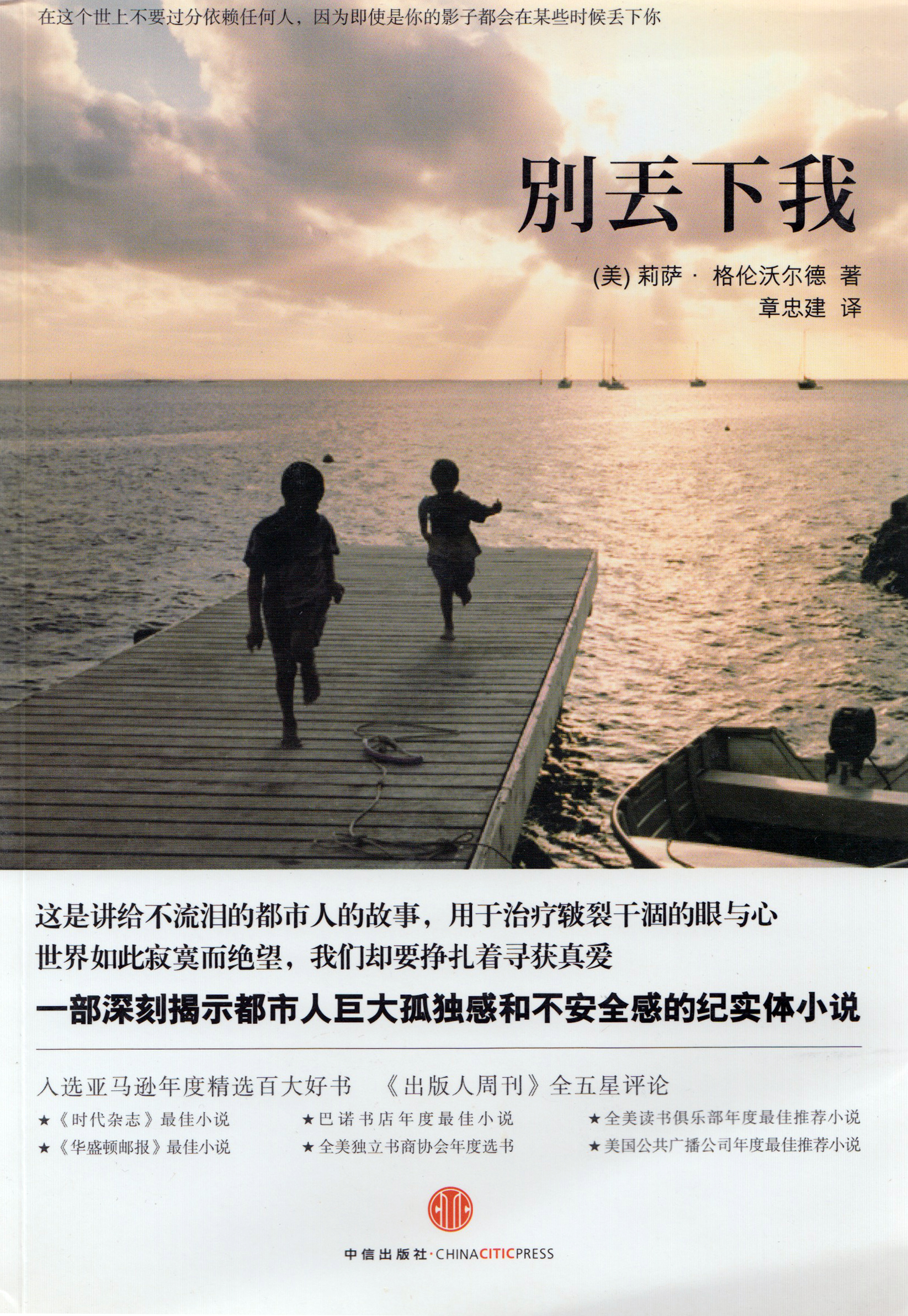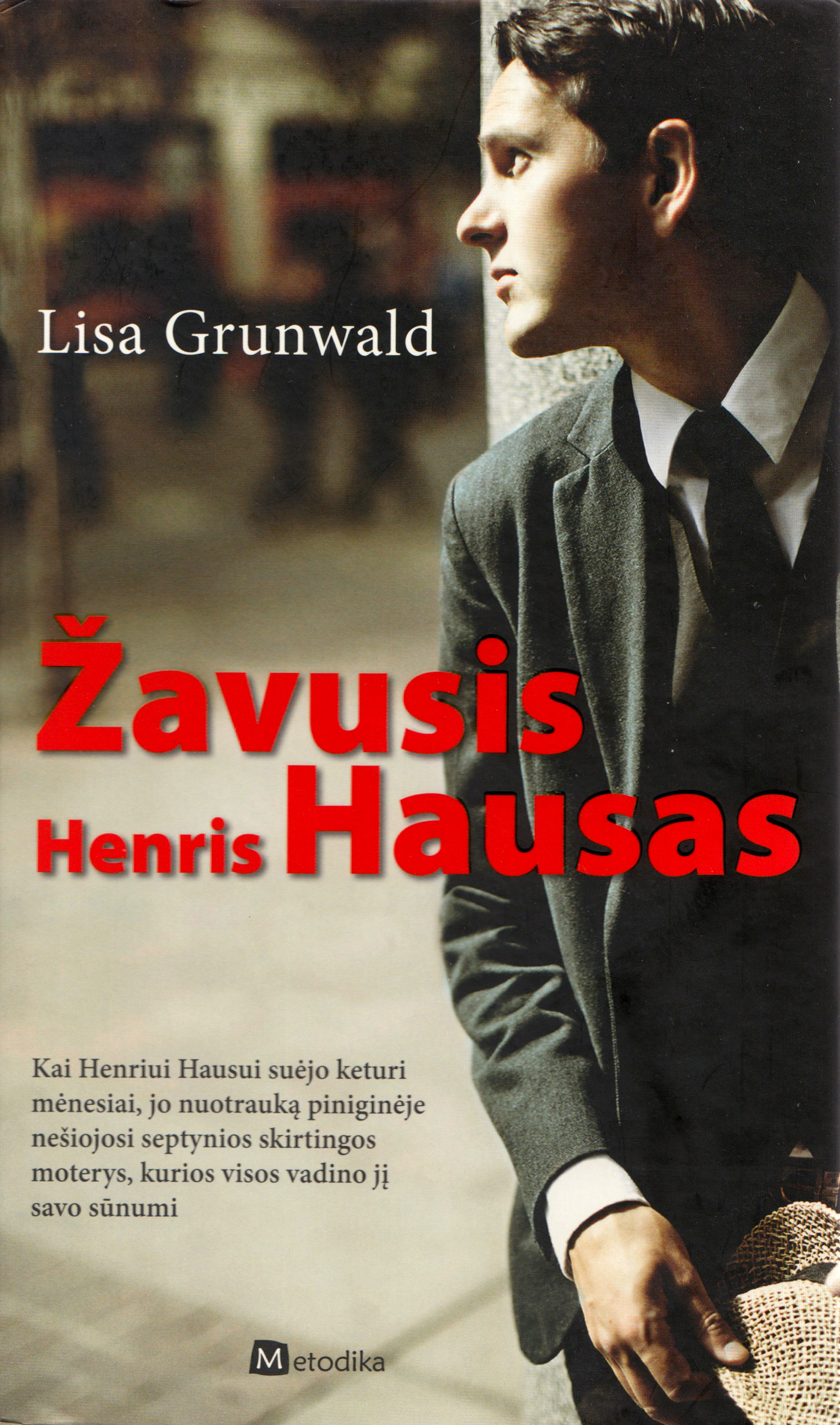
The Irresistible Henry House
The Irresistible Henry House
Random House, 2010
In this captivating novel, bestselling author Lisa Grunwald gives us the sweeping tale of an irresistible hero and the many women who love him. In the middle of the twentieth century, in a home economics program at a prominent university, orphaned babies are being used to teach mothering skills to young women. For Henry House, raised in these unlikely circumstances, finding real love and learning to trust will prove to be the work of a lifetime. From his earliest days as a “practice baby” through his adult adventures in 1960s New York City, Disney’s Burbank studios, and the delirious world of the Beatles’ London, Henry remains handsome, charming, universally adored—but unable to return the affections of the many women who try to lay claim to his heart. It is not until Henry comes face-to-face with the truths of his past that he finds a chance for real love.
A New York Times Editor’s Choice
New York magazine’s Approval Matrix
The Daily Beast’s “Yes List”
Amazon’s Best Books of the Month
A More magazine “Great Read”
A Book Browse Editor’s Choice
Publisher’s Weekly Pick of the Week
Kirkus Starred Review
An O the Oprah Magazine “Book to Watch For”
An Indie Next list Notable
A Goodreads Best of 2010 for Historical Fiction
An Audible Best Book of 2010 So Far
An Amazon Best Books of 2010
Download the Audio Book
REVIEWS of THE IRRESISTIBLE HENRY HOUSE
To the ranks of iconic mid-century modern men Gump and Garp, add The Irresistible Henry House. As imagined by Lisa Grunwald, inspired by the peculiar beginnings of a real baby, Henry's life unspools with more realism and intention than Gump's, with less a sense of dread than Garp's. But Henry and his story have the same almost-magic magnetism... The multidimensional generations of women in his life make a fascinating microcosm of the cultural revolution that redefined the expectations of all American women in the latter half of the 20th century. But it's Henry's struggle to define the desires of his own heart that propels this story, culminating in a scene as transcendent as Carver's Cathedral. — Mari Malcolm, Amazon Best Books of the Month
“Enthralling.”
Epic and thoroughly engrossing... House sweeps along with such page-turning vitality that [Henry’s] story is indeed irresistible. Grade: A. — Leah Greenblatt, Entertainment Weekly
A smart, enjoyable read that will leave you with a pleasing thought: Even for guys who just aren't that into anyone, there's hope. Three stars. — Kim Hubbard, People
“With the clever and accomplished Lisa Grunwald at the wheel, The Irresistible Henry House is as advertised. Irresistible... A little Irving, a little Doctorow, a little Winston Groom, Grunwald’s fifth novel is storytelling for story lovers: realism with an enchanting touch of fairy tale.”
Irresistible. — Kathleen Daly, Newark Star-Ledger
The sure-handed Grunwald puts a wildly original spin on her character... By the book's final pages, as Henry circles back to his beginnings and attempts to come to terms with them, most readers will have succumbed to his charm. — Daniel Stashower, AARP The Magazine
A soaring, heartfelt novel that spans three decades and an entire continent. Grunwald creates a wholly original and all too human character in Henry House. Despite his quirks and shortcomings (or perhaps because of them), Henry is one of the most likeable, relatable characters in recent memory. — Amy Scribner, BookPage
Grunwald has created a wonderfully well-written story about a charming, lovable man who must learn to trust and love the women in his life. — Booklist
A rueful but wry case study of nurture as nightmare. — Kirkus Reviews, Starred Review
This welcome variation of coming-of-age tales shares with Grunwald's previous novels a compelling web of characters and emotions that will please the author's fans and readers who are interested in novels with emotional depth. — Library Journal
FROM ONLINE READERS AND BLOGGERS
I am utterly captivated with this book... Grunwald carefully weaves in actual psychological studies done on real “practice babies” as well as extremely clever character development of her own, generously spiced with the cultural details of the changes that happened throughout the 1950s and 60s to create a truly absorbing story. You've never read a book like this one. I guarantee it. — tatteredcoverbookstore
Great setting, great characters, and great plotting. A+. — Jeannereads
This is a fascinating book that does a great job of exploring the human consequences of psychological theory, and would make for an excellent book club discussion about “Home Ec,” philandering men and the challenges of motherhood in a more modern world. — justthebookstore
Grunwald’s buoyant prose is as bewitching as Henry. Clear and crisp, it glides effortlessly, ripe with terse paradoxes, engaging us with radiant characters. The author’s ingenious insights into human behavior and her ability to keep the reader off-balance but fastened to the story is truly inspired. — Amazon Vine Program reviewer switterbug
Beautifully written, great characters, thoughtful analysis, and a plot that keeps you riveted. I can’t think of anything this book is missing. — Amazon Vine Program E. Jacobs.
Foreign Editions
Press for Henry House
All Things Considered on NPR
The Book Club on WAMC
Blogging about Henry House
HUFFINGTON POST
Long before parenthood was a noun, let alone a TV show, it was still, and always, the subject of debate and the source of drama. Rules versus instincts; permissiveness versus prohibitions: it's never mattered the decade; there have always been passionate conflicts, opposing advice, and bizarre approaches. One of them seemed so bizarre that I felt compelled to write a novel about it.
[read more]
DAILY BEAST
Its spooky moon-pie face glows from the cradle like a radioactive Cabbage Patch Kid’s. A hand reaches out to touch its cheek, which dimples and twists in apparent pleasure. Yotaro, the new Japanese robot baby, is a marvel of computer simulation, even if the people brilliant enough to create it couldn’t find a simple English translation of its functions.
[read more]
POWELL'S BLOG
Stop me if you've heard this before, but writing a novel isa little like having sexwriting a novel is a little like having sex. No two people do it alike, and there's only so much you want to know about other people's approaches. Nevertheless, I have a few times been asked — usually by very young people — what methods I recommend (for writing).
[read more]
The Background to Henry House ...
In 2005, I was doing research for another book, and one thing led to another, specifically to a Cornell University Web site with an online exhibition about the history of home economics. On the front page, among other thumbnail pictures, was the captivating image of a baby with a beguiling smile and roguish eyes. I clicked on the photograph and read that he had been a “practice baby,” an infant supplied by a local orphanage to Cornell’s home economics “practice house,” where college students learned home-making, complete with a live baby whom they took turns mothering. As I did the research for this novel, I learned that the first practice baby came to Cornell in 1919. She was called Joan Domecon (for Domestic Economics), and she stayed for one year. With dozens of subsequent infants, the program continued until 1969. But Cornell was hardly alone. There were practice baby programs all over the country, so literally hundreds of infants started their lives being cared for by multiple mothers. For the most part, the approach seems to have been viewed as one that benefited both the babies and the students, although I did learn about at least one case—in the 1950s—that drew national attention when an Illinois child welfare superintendent questioned what the effects of this kind of upbringing might be. The Irresistible Henry House is my attempt to answer the same question.




